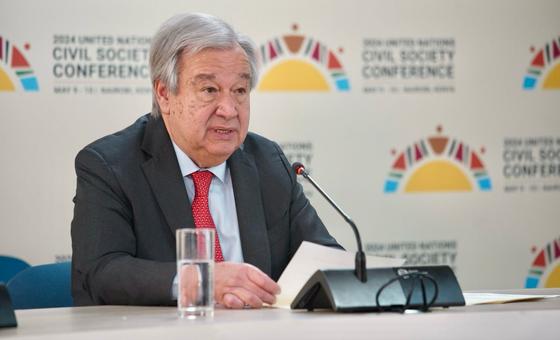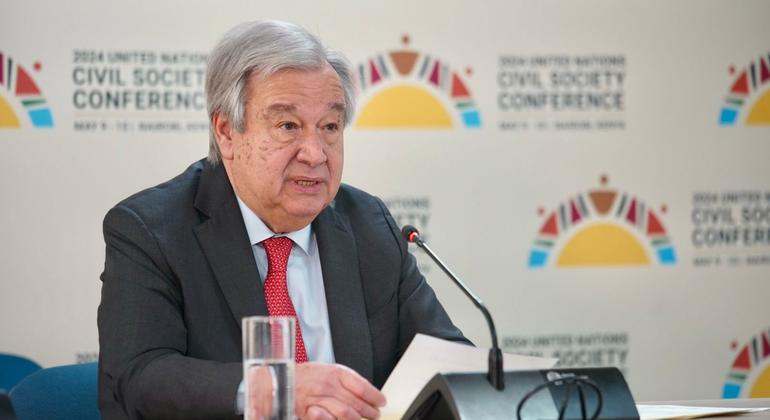
Speaking at a press conference in Nairobi, he warned that “the fate of Palestinians and the entire region hangs in the balance.”
More than a million Palestinians are crowded into Rafah Governorate in southern Gaza as Israeli military operations continue throughout the area. Roughly 100,000 people have left and are moving north.
“A massive ground attack in Rafah would lead to an epic humanitarian disaster and pull the plug on our efforts to support people as famine looms,” he said.
UN engagement ongoing
The UN is actively engaging with all sides towards resuming the delivery of life-saving aid into the enclave, including desperately needed fuel, through the Rafah and Kerem Shalom crossings.
Meanwhile, key medical facilities in Rafah could soon become inaccessible or inoperable, including the only dialysis department still operating in Gaza. At the same time, humanitarians in the south have no more tents or food stocks.
Stressing that international humanitarian law in unequivocal, he said civilians must be protected, particularly vulnerable people unable to relocate from active fighting, such as pregnant women, children, the injured, the sick, and older people and those with disabilities.
‘West Bank ‘repercussions’
As “what happens in Gaza has profound repercussions in the occupied West Bank,” the UN chief also noted the “deeply disturbing spike in settler violence, excessive use of force by the Israeli Defense Force, demolitions and evictions” in the territory.
“All of this speaks to the need for the international community to speak with one voice for an immediate humanitarian ceasefire in Gaza, the immediate and unconditional release of all hostages, and a massive surge in life-saving aid,” he said.



